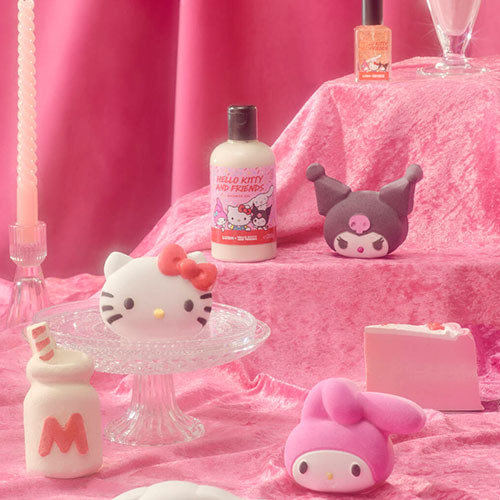Start Licensing’s Ian Downes checks out the pop culture at MCM Comic Con.
I took myself off to the MCM Comic Con at ExCeL on Friday. Comic Com is firmly on the licensing radar these days but wasn’t always so – this year’s show was the 32nd renewal of a show which describes itself as ‘bursting with all manner of sci-fi, fantasy, film, comic book, cosplay anime and gaming goodness’.
I have visited the show quite a few times before but admittedly not all 32 shows… I am sure there are quite a few visitors and exhibitors who have done the 32. I bet there is a #32 t-shirt series out there somewhere.
You know you are getting close to ExCeL when the tube carriages fill with Super Marios, Dr Whos, Thors and other assorted characters. It adds real colour to the commute.
Comic Con really is a show that people take part in, with a significant percentage of visitors wearing costumes or in some cases wearing very little costume. I had my stock answer ready should anyone challenge me about my ‘costume’ – I was the middle aged businessman from Spider-Man 2. It is worth having a good cover story ready.
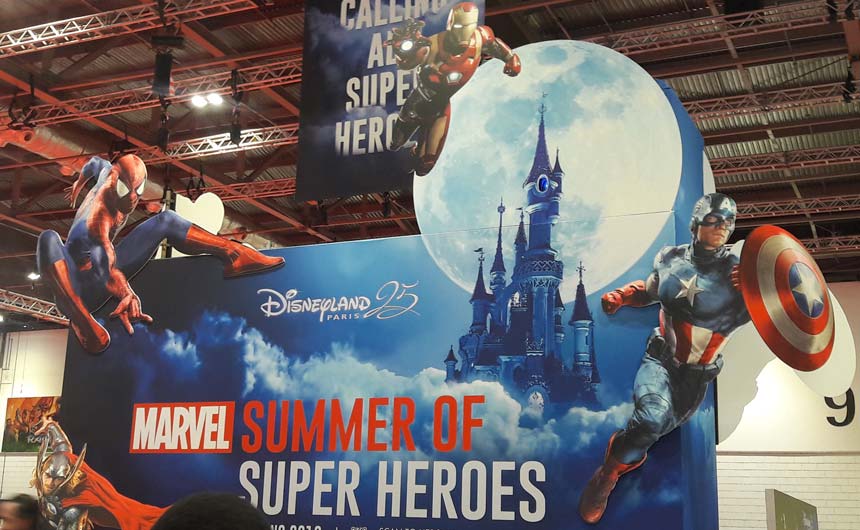
One thing that strikes me about Comic Con is how much the visitors enjoy the show and their part in it – it really does have a great atmosphere and positive feeling around it. I followed a Matt Smith era Dr Who into the show who passed a Tom Baker era Doctor. It was nice to hear them greeting each other with a “Hello Doctor, nice to see you” greeting – a little cameo that sums up the camaraderie at the show. It really is a fanfest and a funfest. There are lots of ‘photo me’ moments as visitors admire each other’s costumes and record them for posterity and more likely social media sharing.
Here are a few observations from my visit:
1. In the run up to the show it was announced that MCM Comic Con has been acquired by ReedPop, the US-based division of Reed Exhibitions. It operates the New York Comic Con. “For nearly a decade I’ve watched with great admiration as the MCM brand grew in size, scale and quality, as well as in the hearts and minds of UK fans. I could not be more proud and humbled to team up with the MCM team to bring two world-class pop culture event companies together,” said Lance Fensterman, Global Head of ReedPOP.
It will be interesting to see what impact this acquisition has, but one thing it signals is that ReedPop has recognised the value in the UK events developed by MCM and the access they give to consumers and brands. From a licensing point of view this is in turn a positive endorsement for pop culture.
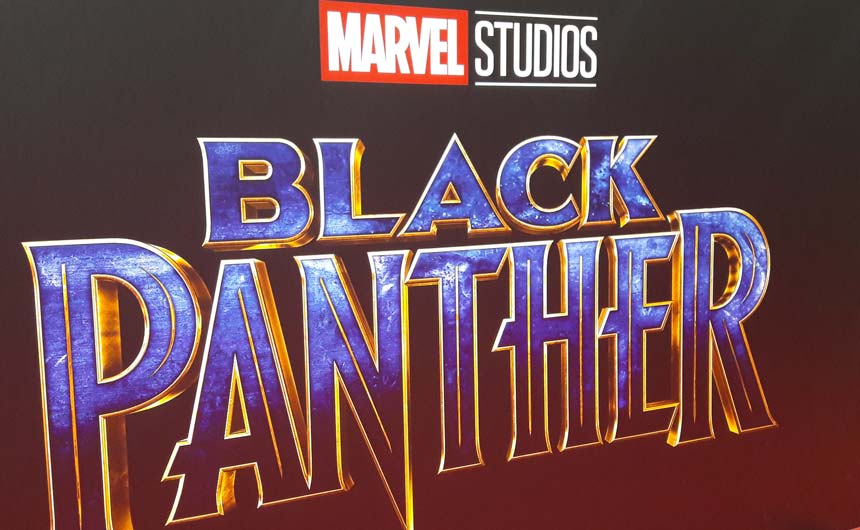
2. It was interesting to see big brands such as Marvel hosting and curating dedicated areas at Comic Con. Marvel brought together a range of licensees including London Mint, Customised By Me, Schleich, Amscan, Bioworld International and Jada Toys. There was an interesting mix of products on show with a couple of highlights being London Mint’s Light-Up Illuminating Coin series (collectable coins) and Jada’s Nano Metal figurines.
For Marvel fans the dedicated area created a metaphoric and literal one stop shop. A key part of Comic Con is the opportunity for visitors to buy products directly from licensees and other vendors. Marvel also used Comic Con as a platform to promote forthcoming films such as Black Panther. Flagging up new content early to ‘influencer’ fans in the age of social media is a good move and helps drive awareness of forthcoming franchises.
3. Comic Con features a lot of vendors selling merchandise such as toys, model kits, housewares and plush directly to consumers. This is a key part of the show and is a popular feature. I was very impressed by the fact that the show is keen to support legitimate products and official licensed merchandise. I bumped into one licensee and said hello to him – he was with a group of colleagues … or so I thought. It turned out his colleagues were actually police officers and trading standards officers who were touring the show with the organisers’ knowledge to check out merchandise on stands and weed out any unofficial products.
I thought this was a really proactive move and a recognition of the reality of the world we operate in. I am sure this approach instils confidence in the event and IP owners would be reassured by this approach.
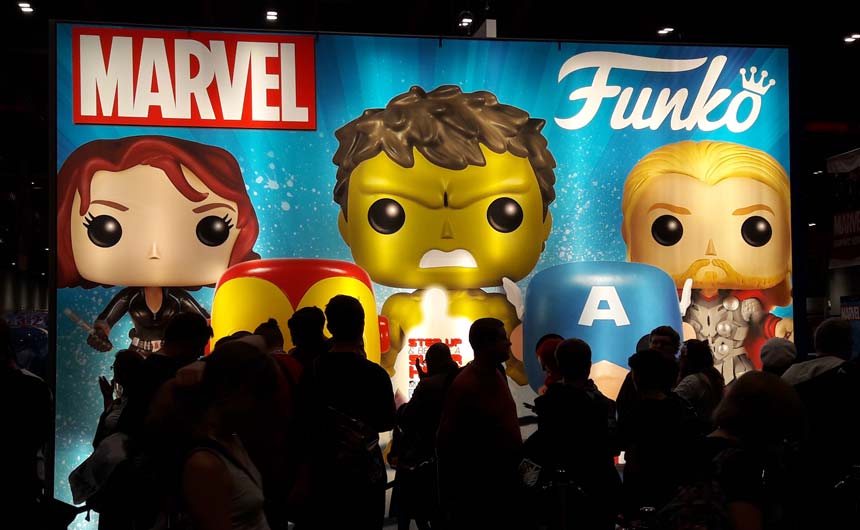
4. Outside of the Marvel zone there was a good presence for other licensees. One good example was Helix with its Star Wars Anniversary Collection. The licensee that really caught the eye was Funko Europe. Funko acquired pop culture licensee Underground Toys relatively recently but has wasted no time in creating a strong presence in the UK and Europe. It had a very impressive stand at the show that was full of a range of the signature Pop Vinyl figurines.
Visitors were able to purchase product from the stand. Judging by the queues it was proving popular. Considering that Funko’s product is, I believe, made up 100% of licensed products this really was a vote of confidence for licensing and how an innovative company can use licensing to accelerate growth and create a unique position in the marketplace.
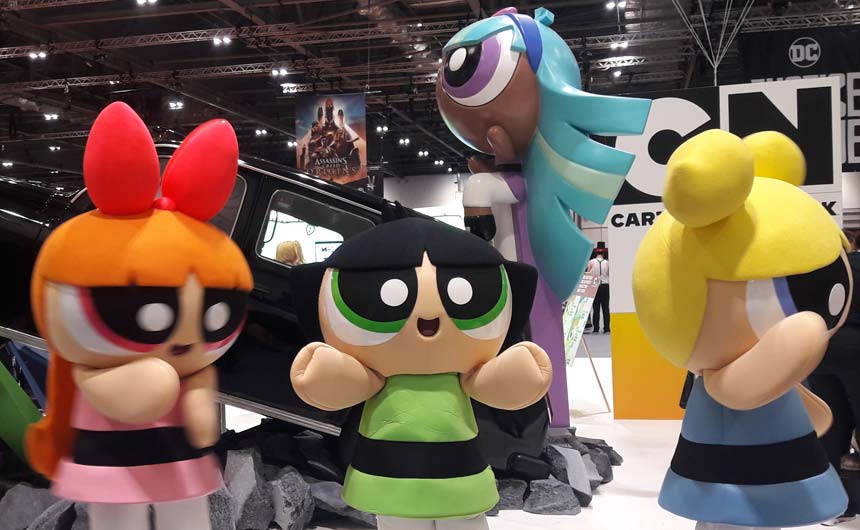
5. I would also watch out for The PowerPuff Girls – Cartoon Network had a very eyecatching PowerPuff Girls feature area and supported this with costume appearances from the characters. This created a good impact and seemed popular. I am guessing this promotion was part of a wider push by Cartoon Network, but also a way of creating marketing collateral for the brand – what better way to showcase the characters than showcase them. An event like Comic Con creates content, provides a test bed for brands and also pushes awareness through social media.
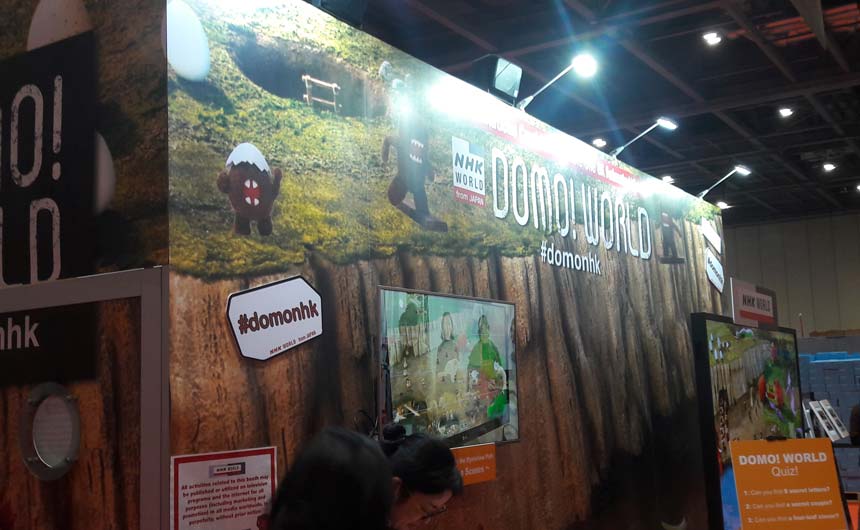
6. Comic Con is also a welcome reminder that pop culture can come from many sources. It was interesting to see Japanese broadcaster and licensor NHK exhibiting for the first time presenting its property Domo. There were also dedicated areas for Manga and Anime coupled with a focus on Asian culture under the PopAsia banner. Bandai had a stand there showcasing Power Rangers, Miraculous and figurines from anime properties such as Sailor Moon and Dragon Ball Z.
It is worth remembering that Japan is the home of some really successful brands, many of which have strong followings in the UK and other parts of Europe but can be under the ‘mainstream’ radar.

7. As you might expect, Comic Con did not overlook the world of computer games. There was a strong presence for gaming properties and characters with a gaming lounge area allowing visitors to play new releases and classic games. Nintendo had driven its Super Mario double decker bus into ExCeL which created quite an impact – a very bold brand statement. This was a reminder about the growing significance of gaming brands and characters in pop culture and in turn their potential in licensing.
8. There is a clue in the name, but it is good to see that despite the growth in other areas of pop culture at the show that comics haven’t been forgotten. It is sometimes easy to forget that Marvel characters originated in comics. There was a number of well-known comic artists in attendance cementing the link to the comic world – many of them were offering draw on demand illustrations and the chance to buy comic art.
I wasn’t there but the forthcoming Bananaman Musical was showcased at Comic Con with a panel session discussing the journey from comic page to musical stage. Again this underpins the significance of Comic Con in the marketing of pop culture brands and events – it really is a great launchpad for new concepts and a credible way of reaching fans.
On this latter point there is a balance to strike I think. I think fans and fandom cannot be taken for granted. As Comic Con grows, it is important brand owners do not overfish the fan pool. I think the show organiser is respectful of the audience and will act as a responsible curator, but brand owners need to play their part as well.
One related point here from a commercial point of view was that a number of manufacturers and licensees were offering show exclusives at Comic Con – a good practical example of how direct selling can cut through retail barriers and allow licensees to connect directly with fans. I think IP owners should look at more pop up retail opportunities that create real selling opportunities.
It was a really worthwhile afternoon spent at Comic Com – informative and uplifting; it was really good to see people enjoying ‘pop culture’ and being fans. Hopefully Comic Con will go from strength to strength with licensing being a significant part of the event.
Ian Downes runs Start Licensing, an independent brand licensing agency. His Twitter handle is @startlicensing – he would welcome your suggestions for what to look out for.



























